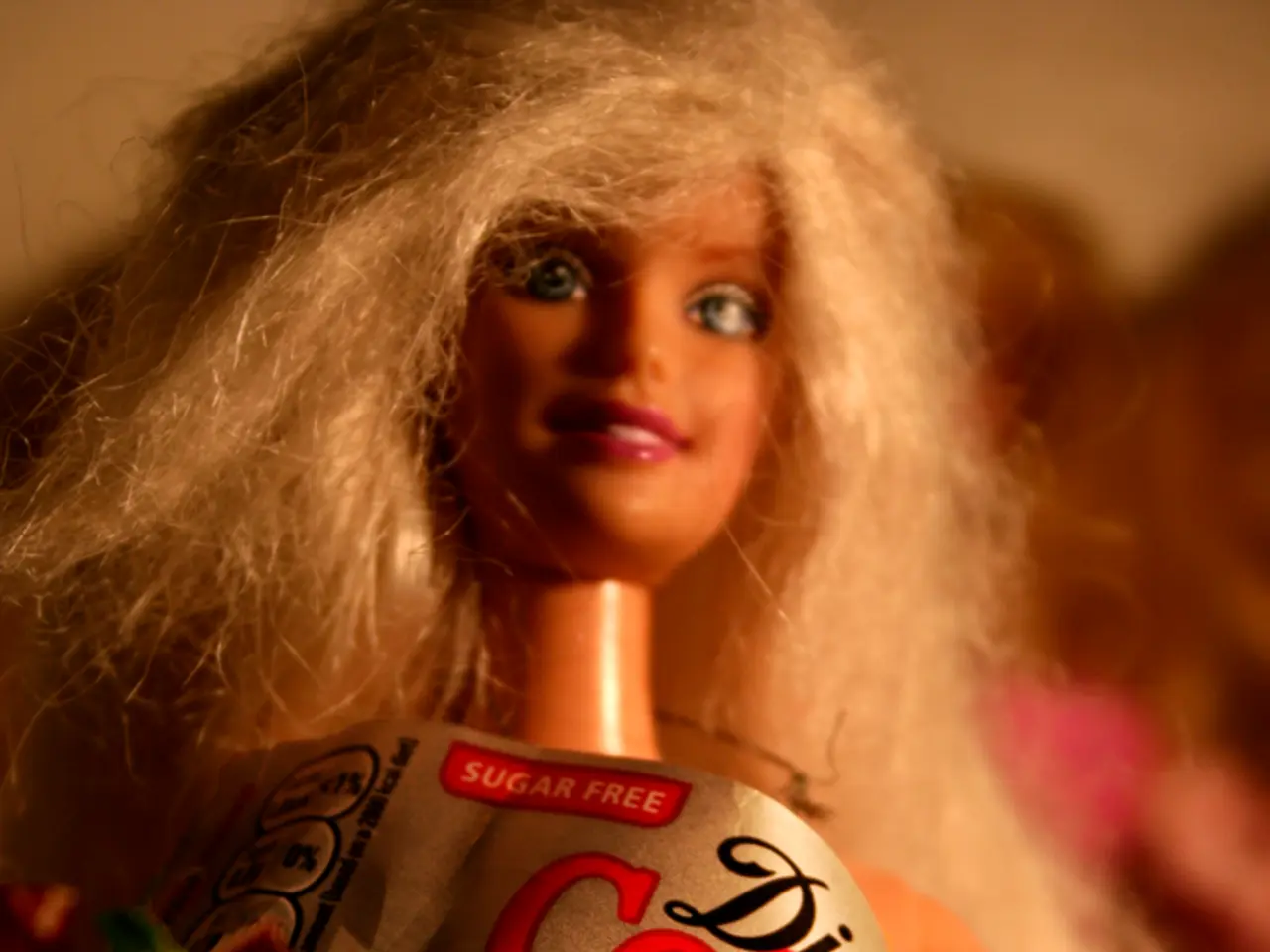Soda consumption and diabetes risk: Studies and findings on their connection
In the United States, diabetes is the seventh leading cause of mortality, affecting an estimated 9.4 percent of the population [1]. A recent study has revealed a potential link between the regular consumption of sugar-sweetened drinks and the risk of developing type 2 diabetes.
People who consume one or more sugar-sweetened drinks daily have a higher risk for diabetes than those who drink less than one a month, even when energy intake and Body Mass Index (BMI) are accounted for [2]. However, it's important to note that further research is needed to determine if sugar-sweetened drinks more directly cause type 2 diabetes [3].
The link between sugar-sweetened drinks and diabetes could be due to "an effect on weight gain" and the "glycemic effects" of sugar-sweetened drinks causing insulin resistance [4]. This is concerning, given that being overweight or obese is a risk factor for diabetes and other conditions.
In light of these findings, it's crucial to explore alternatives to sugar-sweetened drinks. Here are several options that can be beneficial:
## Soda Alternatives
1. Olipop: A healthy soda alternative that is low in sugar and rich in probiotics and plant fiber. It is sweetened with stevia and contains minimal added sugar, providing a natural taste without artificial sweeteners [1].
2. Kombucha: A fermented tea drink rich in probiotics, which can support gut health. However, be mindful of sugar content in some commercial versions [1].
3. Flavored Water (La Croix & Waterloo): Sparkling water with natural flavors can satisfy the desire for fizzy drinks without added sugars [1].
4. Mineral Water: Rich in trace minerals, mineral water can be infused with fruits or herbs for added flavor [1].
5. Coconut Water: A natural source of electrolytes, ideal for post-workout hydration or hot days. Choose unsweetened versions [1].
6. Mock-Mimosa: A low-sugar alternative to cocktails, made with sparkling water and orange juice [1].
7. Infused Water: Add slices of lemon, lime, or cucumber to water for a refreshing and sugar-free drink [1].
8. Unsweetened Green Tea: Rich in antioxidants, green tea can help improve insulin sensitivity [3].
9. Sparkling Water with a Splash of Juice: Mixing sparkling water with a small amount of 100% fruit juice provides a fizzy drink with less sugar [3].
## Benefits of Alternatives
- Reduced Sugar Intake: Most alternatives have significantly less or no added sugars, which is crucial for managing blood sugar levels. - Improved Hydration: Water-based drinks help maintain hydration, which is essential for overall health. - Nutrient-Rich Options: Some alternatives, like coconut water and green tea, offer additional health benefits beyond hydration.
Switching from diet drinks to water can lead to significant improvements in weight loss and diabetes remission, as shown in recent studies [5]. The effect of artificially sweetened drinks on diabetes is less clear. Some studies claim that it has less or no impact on the risk of developing diabetes, while others suggest it affects the mechanisms that lead to diabetes in different ways [3].
In conclusion, reducing soda consumption can help mitigate the risk of developing type 2 diabetes. By exploring alternatives like those listed above, individuals can make healthier choices that contribute to a lower risk of diabetes and improved overall health.
References: [1] American Heart Association. (2021). Healthy Beverage Choices. Retrieved from https://www.heart.org/en/healthy-living/healthy-eating/eat-smart/nutrition-basics/healthy-beverage-choices [2] Malik, V. S., Hu, F. B., & Willett, W. C. (2010). Sugar-Sweetened Beverages and Weight Gain in Children and Adults: A Systematic Review. The American Journal of Clinical Nutrition, 92(1), 289S–299S. https://doi.org/10.3945/ajcn.2010.293355 [3] American Diabetes Association. (2021). Sugary Drinks and Artificial Sweeteners. Retrieved from https://www.diabetes.org/healthy-living/food-and-fitness/food/what-can-i-eat/sugary-drinks-and-artificial-sweeteners [4] American Diabetes Association. (2019). Type 2 Diabetes: The Basics. Retrieved from https://www.diabetes.org/diabetes/type-2-diabetes/what-is-diabetes [5] Nielsen, S. L., Röös, E., & Ahlqvist, J. (2019). Effect of water and sugar-free drinks on weight loss: a systematic review and meta-analysis of randomized controlled trials. The American Journal of Clinical Nutrition, 109(3), 527–543. https://doi.org/10.1093/ajcn/nqz216
People often underestimate the association between regular consumption of sugar-sweetened drinks and an increased risk of developing type-2 diabetes. A naive presupposition might overlook the potential dangers hidden within these beverages.
However, the scientific community is still weighing the evidence to determine if sugar-sweetened drinks directly cause type-2 diabetes, or merely exacerbate existing chronic diseases like diabetes through effects on weight gain and insulin resistance.
When examining alternatives to sugar-sweetened drinks, it's crucial to consider options that cater to established personas concerned with health-and-wellness, such as those seeking fitness-and-exercise enhancements or focusing on nutrition.
For example, people might choose among various soda alternatives like Olipop, Kombucha, flavored water, mineral water, coconut water, mock-Mimosa, infused water, unsweetened green tea, and sparkling water with a splash of juice. Each of these alternatives offers unique benefits, such as reduced sugar intake, improved hydration, and nutrient-rich options.
Recent studies suggest that switching from diet drinks to water can significantly help with weight loss and diabetes remission. It's essential to stay informed about treatment options for type-2 diabetes, including weight loss and fitness-and-exercise strategies, to better manage this chronic disease.
It is worth noting that being overweight or obese is a established risk factor for not only type-2 diabetes but also other medical-conditions. Therefore, practicing a combination of healthy eating, regular exercise, and careful consideration of beverage choices can collectively reduce the likelihood of developing type-2 diabetes.
In summary, education and exploration of alternative drink options play crucial roles in reducing the risk of type-2 diabetes. By better understanding the science behind diabetes and making informed decisions, we can collectively contribute to a healthier future.




